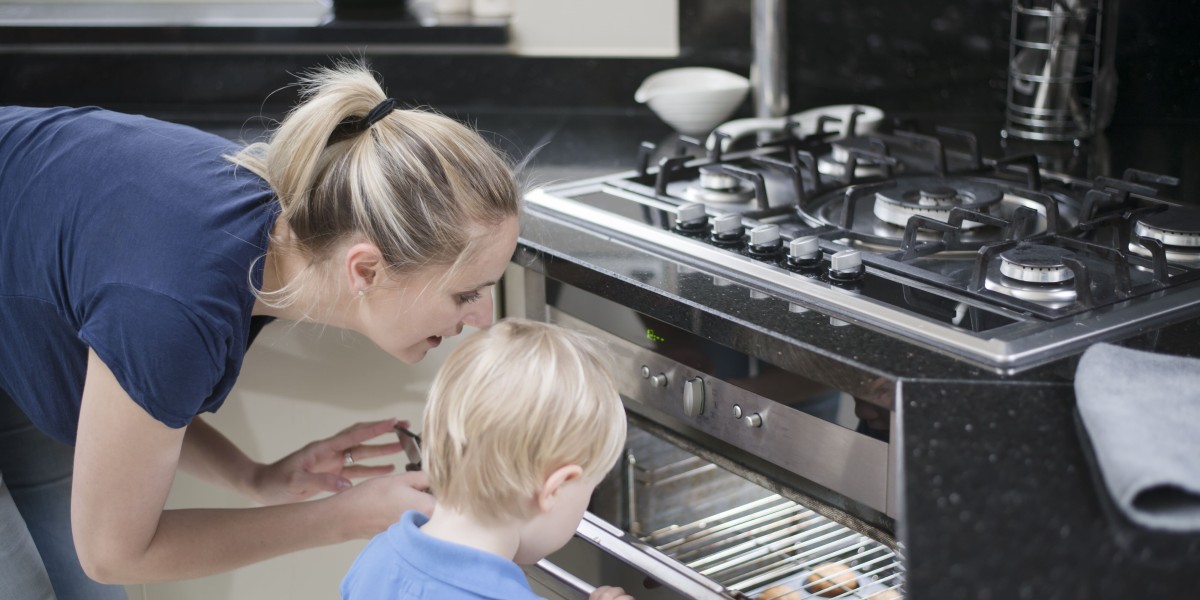The Integrated Cooker: A Comprehensive Guide to Modern Cooking Solutions
The advancement of kitchen appliances has actually transformed cooking and cooking strategies, making meal preparation more effective and enjoyable. Amongst these innovations, the integrated cooker stands out as a versatile and space-saving addition to modern kitchen areas. This article explores the numerous aspects of integrated cookers, including types, benefits, functions, and a contrast with standard cooking approaches.

What is an Integrated Cooker?
An integrated cooker is a compact cooking home appliance that combines multiple cooking functions into one unit. Typically built into kitchen cabinetry, these cookers are created to save area while improving kitchen aesthetic appeals. They typically integrate a range of performances, such as baking, grilling, steaming, and even pressure cooking.

Key Features of Integrated Cookers
- Multi-Functionality: Integrated cookers can carry out various cooking tasks, eliminating the requirement for numerous appliances.
- Space-Saving Design: These cookers fit seamlessly into kitchen systems, making them ideal for modern homes with limited space.
- Advanced Technology: Many integrated cookers come geared up with smart innovation, such as programmable settings, touch-screen controls, and connection options.
- Energy Efficiency: Built with contemporary materials and design, they typically take in less energy compared to standard cooking approaches.
Kinds Of Integrated Cookers
The marketplace provides numerous kinds of integrated cookers, each with its distinct set of features and functionalities. Here are the most common types:
| Type | Description | Example Use |
|---|---|---|
| Built-in Ovens | Ovens that are fitted into wall units or cabinetry | Baking bread, roasting meats |
| Induction Hobs | Cooktops that utilize electromagnetic energy to heat pots and pans | Rapidly boiling water, sautéing |
| Steam Ovens | Appliances that prepare food utilizing steam for much healthier outcomes | Steaming vegetables, fish |
| Microwave Ovens | Integrated microwaves for fast heating and cooking | Reheating leftovers, making popcorn |
| Mix Ovens | A mix of traditional and steam cooking technologies | Baking while making sure moisture retention |
Benefits of Using Integrated Cookers
Integrated cookers provide a host of advantages over standard cooking tools. Below are a few of the key benefits:
- Space Efficiency: Ideal for compact kitchen areas, integrated cookers make use of vertical spaces effectively.
- Streamlined Cooking Process: With multiple functions available, users can transition from one cooking technique to another with very little effort.
- Enhanced Aesthetics: Many integrated cookers can be found in sleek styles that mix well with modern-day kitchen decoration.
- Enhanced Cooking Control: Programmable functions enable exact cooking, making sure much better meal results.
Integrated Cookers vs. Traditional Cooking Appliances
When considering meal preparation alternatives, it is necessary to weigh the advantages of integrated cookers against traditional cooking appliances. Below is a contrast chart:
| Feature | Integrated Cooker | Traditional Appliances |
|---|---|---|
| Space Efficiency | High | Lower |
| Multi-Functionality | Yes | No (needs multiple appliances) |
| Energy Consumption | Typically lower | Can be greater |
| Cooking Speed | Faster (specifically with induction) | Varies |
| Style | Modern and smooth | Differs widely |
The integrated cooker is a forward-thinking home appliance that fulfills the needs of today's busy way of life. Its multiplicity of functions, space-saving design, and streamlined looks make it a worthwhile investment for any modern kitchen.
For those aiming to conserve time, area, and effort in meal preparation, integrated cookers offer an outstanding service that enhances the cooking experience while delivering tasty, well-prepared meals.
Regularly Asked Questions (FAQs)
1. What is the average cost of an integrated cooker?
The rate of integrated cookers can differ extensively, generally ranging from ₤ 500 to ₤ 3,000 depending on features, brand name, and size.
2. Just how much maintenance do integrated cookers require?
Maintenance frequently includes regular cleansing of surfaces and examining for any software updates if they include wise technology. It's advisable to follow the maker's guidelines.
3. Can I change my existing oven with an integrated cooker?
Yes, integrated cookers can often replace traditional ovens, but it is necessary to speak with a professional to make sure compatibility with your kitchen design.
4. Are integrated cookers difficult to set up?
Installation can be uncomplicated for those with DIY experience. However, employing a qualified professional is advised to ensure appropriate setup.
5. Who benefits most from using an integrated cooker?
Families, time-pressed people, and those living in compact homes particularly benefit from the multi-functionality and space-saving design of integrated cookers.
In this age of convenience and efficiency, integrated cookers are redefining how we approach cooking. Whether you are a knowledgeable chef or a cooking beginner, incorporating this powerful appliance into your kitchen can substantially improve your cooking experience.








